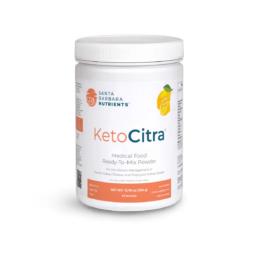As we delve deep into countless medical journals to uncover the latest on Integrative Medicine’s approach to kidney health, we are always reminded of the value of your time. Our commitment remains steadfast in curating and succinctly summarizing these vital studies for you. Welcome to the October Research and News.
Cannabis Cream Reduces Itching in CKD Patients: A Randomized Controlled Trial
This double-blind, placebo-controlled study evaluated the effectiveness of a cannabis-containing cream in alleviating pruritus associated with chronic kidney disease (CKD).
Sixty hemodialysis patients experiencing moderate to severe itching were randomly assigned to use either the cannabis cream or a placebo over four weeks.
The primary measure was the change in itching intensity, assessed using the Worst Itching Intensity Numerical Rating Scale (WI-NRS).
Results showed a significant reduction in itch severity in the cannabis group compared to the placebo, with no reported side effects.
Why is this important?
Itching is a common and distressing symptom for patients with CKD, often leading to reduced quality of life. Current treatments are limited in effectiveness and can have undesirable side effects.
The findings suggest that cannabis cream could be a safe and effective option for managing CKD-associated pruritus, providing relief and potentially improving overall well-being in this patient population.
Further research with larger sample sizes and longer follow-up periods could help validate these results and explore the long-term safety and effectiveness of cannabis-based treatments for pruritus in CKD patients.
“Weekend Warrior” Physical Activity Reduces Kidney Disease Risk: A Study of 77,977 Participants
A comprehensive analysis of 77,977 UK Biobank participants explored the impact of a “weekend warrior” physical activity pattern—where most moderate to vigorous physical activity (MVPA) is packed into 1-2 days a week—on the incidence of chronic kidney disease (CKD) and acute kidney injury (AKI).
Participants were categorized into three groups: active weekend warriors, active regulars (evenly distributed exercise), and inactives (less than 150 minutes of MVPA per week).
The findings indicated that both active weekend warriors and regular exercisers had a lower risk of developing CKD and AKI compared to inactive participants, demonstrating that concentrated weekend activity is as beneficial as more frequent exercise sessions.
Why is this important?
This study challenges the traditional notion that exercise must be distributed evenly throughout the week to confer health benefits, particularly concerning kidney health.
The “weekend warrior” exercise pattern, often more feasible for individuals with busy weekday schedules, is now shown to be equally effective in reducing the risks of CKD and AKI.
This flexibility in achieving physical activity goals can make lifestyle interventions more accessible and manageable for the wider public, potentially improving adherence rates and public health outcomes related to kidney disease.
Increased Risk of Falls, Hospitalizations, and Mortality Linked to Discrepancy in Kidney Function Estimates Among Older Adults
A comprehensive study involving 5,574 older adults from the Health and Retirement Study investigated the health risks associated with significant discrepancies between creatinine-based and cystatin C-based estimated glomerular filtration rates (eGFR).
Defined as a cystatin-based eGFR (eGFRcys) being more than 30% lower than the creatinine-based eGFR (eGFRcr), a large discordance was observed in 30% of the participants.
Over two years, those with a large eGFR discordance faced increased risks of death, falls, and hospitalizations, though not hip fractures.
Why is this important?
When cystatin C-based eGFR is more than 30% lower than creatinine-based eGFR in elderly individuals, this discrepancy could indicate reduced muscle mass.
Since creatinine production is influenced by muscle mass, less muscle results in lower creatinine levels, potentially leading to an overestimation of renal function when using creatinine-based eGFR alone.
This makes cystatin C—a biomarker not affected by muscle mass—a valuable tool for more accurately assessing kidney function in this demographic.
This understanding is crucial as it highlights the need for dual filtration markers to improve diagnostic accuracy and guide better clinical decisions in managing elderly patients, potentially leading to more appropriate and targeted interventions.
Join us to end the kidney disease epidemic
Urinary Response to Consuming Plant-Based Meat Alternatives in Persons with Normal Kidney Function: The SWAP-MEAT Pilot Trial
The SWAP-MEAT trial, a randomized eight-week crossover study, evaluated the impact of plant-based meat alternatives compared to traditional animal meat on urinary and serum markers in individuals with normal kidney function.
The trial included 36 participants who alternated between consuming “plant-meat” and animal meat over two eight-week phases.
Results showed that plant-meat consumption led to significantly lower levels of urinary sulfate, ammonium, phosphorus, and urea nitrogen, alongside higher urine pH and citrate/creatinine ratios.
Additionally, serum creatinine concentrations decreased slightly during the plant-meat phase, although serum bicarbonate levels remained unchanged.
Why is this important?
Switching from animal to plant-based meat alternatives could potentially lower the dietary acid load and modify urinary excretion profiles in ways that may benefit kidney health.
These findings suggest that plant-based diets might help in managing or preventing conditions exacerbated by higher dietary acid loads, such as urinary stone disease and chronic kidney disease.
Further research could explore whether these dietary changes would have practical therapeutic implications for individuals with compromised kidney function, particularly in light of the global rise in kidney disease prevalence and the need for preventive dietary strategies.
Review article of the month
Toxic Exposures in Vulnerable Populations
The health of our environment significantly impacts community and individual health. Exposure to both man-made and natural toxins—like air, water, and soil pollutants—can cause tissue damage, organ dysfunction, and increase morbidity and mortality rates.
Common pollutants include fine particulate matter, heavy metals such as arsenic and mercury, pesticides, herbicides, and perfluorinated chemicals. Furthermore, increasing global incidences of heat waves, wildfires, and other natural disasters not only directly affect health but also lead to higher exposure to mixed pollutants and infrastructure damage.
This editorial discusses all these details.
You can download the full PDF here.
Join here to receive FREE monthly updates on the latest research in Integrative Nephrology and tips on managing kidney disease straight to your inbox.
We would love to hear your feedback. Let us know what you think of these educational materials and if you like us to focus on specific topics. Please email us at info@inkidney.com.







